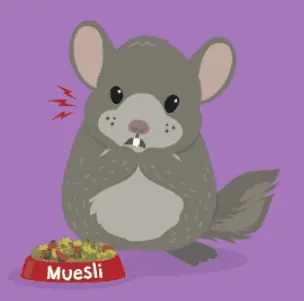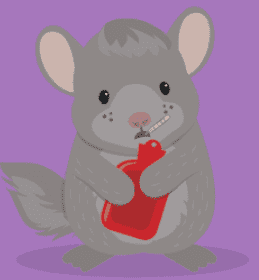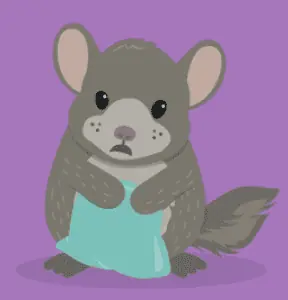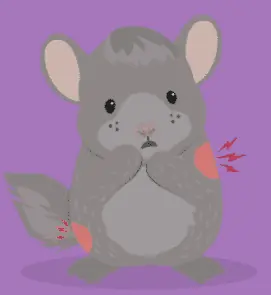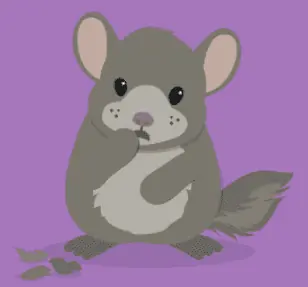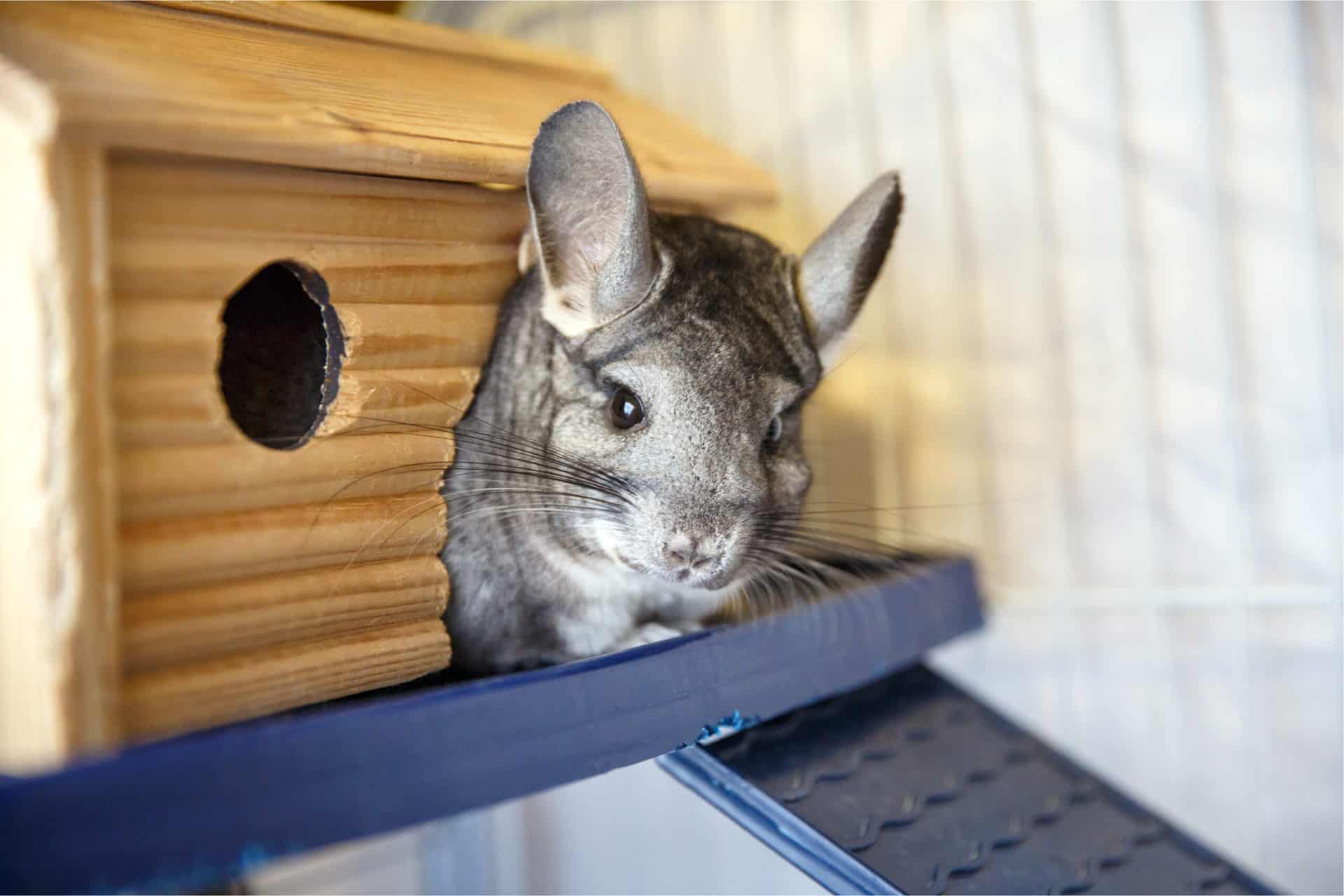Keeping your chinchillas fit and healthy
Check your chinchillas every day for any signs that they’re unwell. Take your chinchillas to the vet at least once a year. Chinchillas are prey animals so will hide signs of ill-health or pain, so annual vet visits are so important to avoid illness. Chinchillas need specialist care, so try to find a vet with experience in chinchillas.
If your chinchilla’s behaviour or their eating and drinking patterns change, take your chinchilla to the vet as soon as possible. One of the first warning signs to watch out for is a change in their droppings.
Common health problems
Quick tip

Excel Chinchilla Nuggets with Mint
Chinchilla health check
As chinchillas are prey animals, they are likely to hide any signs they are feeling unwell. You know your chinchillas best. If you have any concerns about your chinchillas’ behaviour or their health, get advice from a vet with experience in chinchillas.
Chinchillas need access to a dust bath at least 2-3 times a week – sometimes even daily! If you chinchillas are bathing daily, only let them in their dust bath for 10-15 minutes and watch out for dry skin around their ears. This could be a sign they’re bathing too much. Make sure the sand is very fine and suitable for chinchillas. Don’t put a lid on the dust bath as this stops the air flow. Only use chinchilla-friendly sand, don’t bath your chinchillas in water as this can damage their fur.
Behaviour: The best time to observe your chinchillas is in the evening or at night. Keep an eye out for any signs of stress. This can include hiding, chewing their own or their housemate’s fur, pacing up and down or making lots of noise
Body: When stroking your chinchillas, check for any swellings or lumps and if your chinchillas seem to be in pain when you touch them
Eyes: Check regularly for runny eyes
Feet: Watch out for any injuries to your chinchillas’ feet
Mobility: It’s fun to watch your chinchillas play! When you do, keep an eye out for any signs of limping or if they seem to have less energy than usual
Nose: Make sure there’s no discharge coming from your chinchillas’ noses
Skin and coat: Check regularly for any open wounds or fur loss
Teeth: Keep an eye on your chinchillas’ teeth for any signs they are overgrown or misaligned
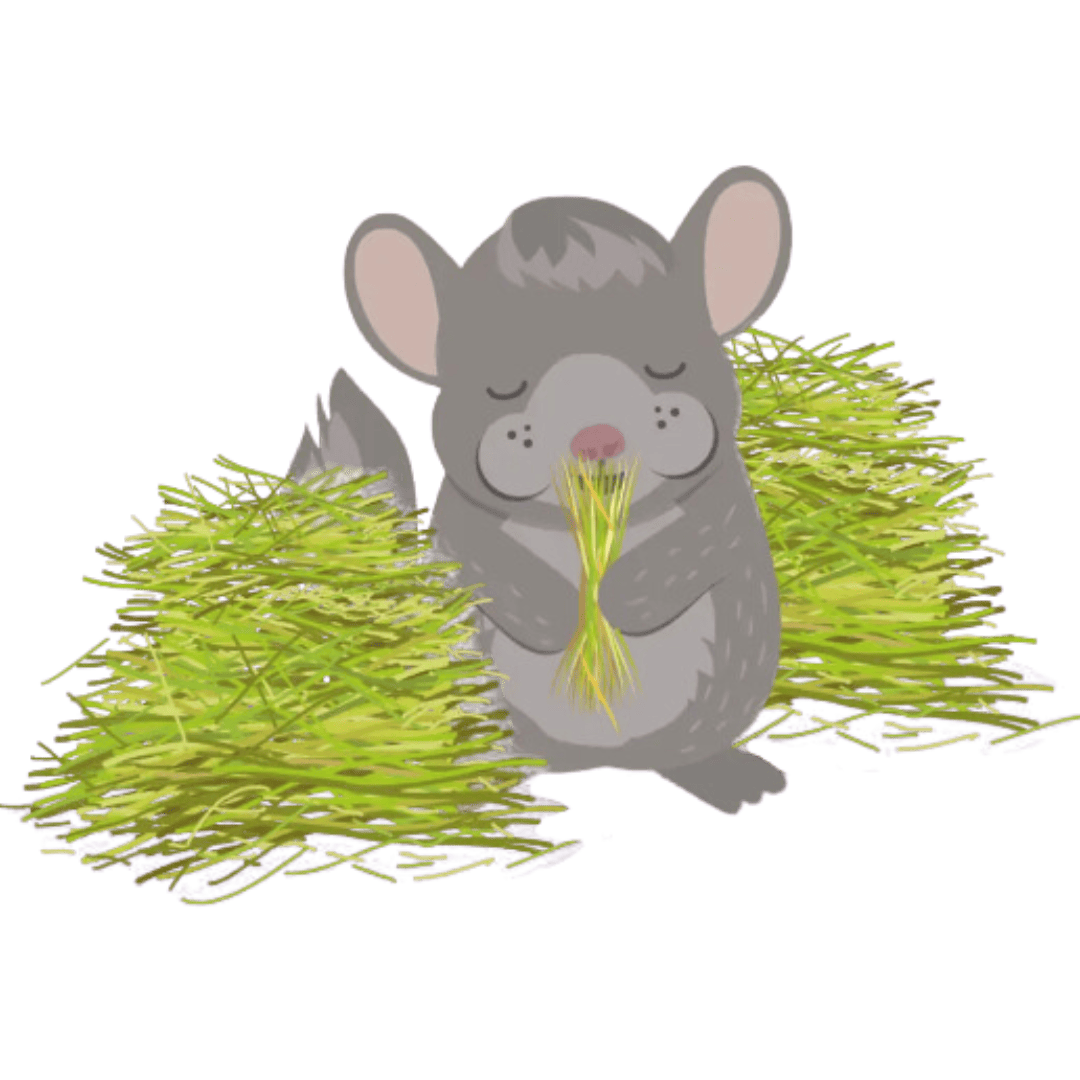
Neutering your chinchillas
FEMALES:
It is uncommon to neuter female chinchillas as a spay is a very invasive procedure and is difficult for the female chinchilla to recover from.
MALES:
If you have a mixed group of male and female chinchillas, the male should be neutered. This is to avoid any unwanted pregnancies and reduce any aggressive behaviour.
Our Burgess Excel Range








Do you need more advice?
To help you find the right food for your pet have a look at our product range.
You can get in touch with our customer care team who will respond in 3-5 working days. Our dedicated team of pet experts will help you make the right choice.
If you should have any concerns about the health of your pet, always consult a vet.

